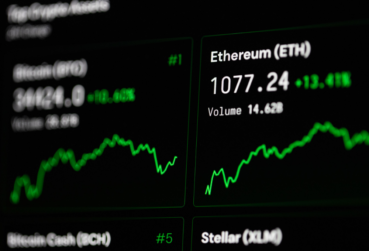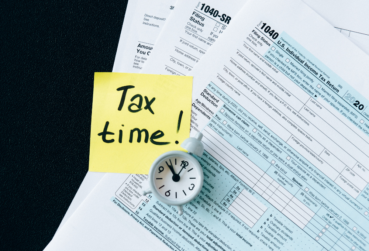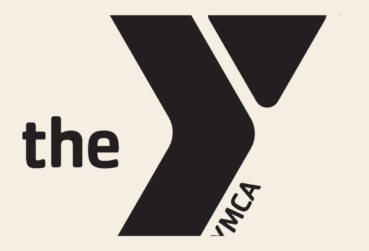Business owners could face large tax bills as a result of PPP loans
 Author: Kyle Meissner
Author: Kyle Meissner
CPA, MANAGER
Because of its forgivable and generous nature, businesses nationwide quickly took advantage of Paycheck Protection Program (PPP) loans when they became available to help mitigate some of the financial toll of the COVID-19 pandemic. The program was meant by Congress to provide businesses with forgivable financial assistance during one of the most unprecedented and challenging economic conditions of the last 100 years. Businesses took these loans in order to keep their operations afloat and employees on payroll during a difficult time. Now, however, the realities of the potential tax implications of these loans are coming to light.
Borrowers who spend PPP loan proceeds on qualified expenses are not required to repay their loan. This is called cancellation of debt (COD) income, and is normally included in gross taxable income, but the CARES Act has excluded PPP loan COD income from taxable gross income. However, expenses such as payroll, rent, and utilities that would normally have been tax deductible against the borrower’s income, are currently not eligible for tax deduction for those who used PPP loan proceeds to pay for these expenses. So, regardless of the treatment of COD, borrowers end up in the same place.
Here’s an example to consider:
Normal : $10 income – $6 of expenses = $4 of taxable income
Without exclusion of COD income: $10 income +$3 forgivable PPP loan revenue – $6 expenses = $7 taxable income
Or with exclusion and expense disallowance: $10 income – $6 expenses+$3 worth of PPP loan expenses = $7 taxable income
Both scenarios result in a taxpayer paying tax on the loan amount of $3.
It is the position of the IRS that PPP loan borrowers should not be able to claim a double tax benefit, meaning they should not claim tax deductions on expenses paid for with PPP loan proceeds. Some are arguing that this goes against the intent of the program and there is movement in Congress to amend the treatment. In the meantime, it could mean that businesses will owe more in taxes than they normally pay in a given year, especially if they have large payrolls. In certain instances, it may prove better to delay seeking forgiveness of PPP loans in order to defer the increase to taxable income into a future tax year.
Please discuss your particular situation with your tax advisor. And if we can help, please contact any of the professionals from Cordell, Neher & Company, PLLC. at 509-663-1661.
Events & Deadlines
Community Service Day
Cordell Neher & Company, PLLC 175 E Penny Rd #1, Wenatchee, United StatesCNC Newsletter
Subscribe and stay informed on policy changes that could have an impact on you.
Footer Contact
Check the background of your financial professional on FINRA's BrokerCheck®
Privacy & Usage: The information on the Cordell, Neher & Company, PLLC website is provided with the understanding that it should not be substituted, in any way, for consultation with a professional Certified Public Accountant, accountant, tax, legal or other competent advisor. Cordell, Neher & Company, PLLC makes every attempt to ensure that the information contained on their websites are obtained from reliable sources, but is not responsible for any errors and/or omissions or from the results obtained from the use of any information. This site contains links to servers maintained by other organizations. Cordell, Neher & Company, PLLC cannot provide any warranty regarding the accuracy or source of information found on any of these servers, the content of any file the user might use to download from a third-party site, and is not responsibility for the content found on any of these servers or for any links these servers maintain with other servers.
Avantax affiliated advisors may only conduct business with residents of the states for which they are properly registered. Please note that not all of the investments and services mentioned are available in every state. Securities offered through Avantax Investment ServicesSM, Member FINRA, SIPC, Investment Advisory services offered through Avantax Advisory ServicesSM,Insurance services offered through an Avantax affiliated insurance agency. 3200 Olympus Blvd., Suite 100 Dallas, TX 75019 972-870-6000.
Avantax financial professionals may only conduct business with residents of the states for which they are properly registered. Please note that not all of the investments and services mentioned are available in every state. Securities offered through Avantax Investment Services.SM, Member FINRA, SIPC. Investment Advisory Services offered through Avantax Advisory Services SM. Insurance services offered through an Avantax affiliated insurance agency. Method 10® is property of Avantax Wealth Management.SM All rights reserved 2020. The Avantax family of companies exclusively provide investment products and services through its representatives. Although Avantax Wealth Management does not provide tax or legal advice, or supervise tax, accounting or legal services, Avantax representatives may offer these services through their independent outside business. This information is not intended as tax or legal advice. Please consult legal or tax professionals for specific information regarding your individual situation.
The Avantax family of companies exclusively provide financial products and services through its financial representatives. Although Avantax Wealth ManagementSM does not provide or supervise tax or accounting services, Avantax Representatives may offer these services through their independent outside business. Content, links, and some material within this website may have been created by a third party for use by an Avantax affiliated representative. This content is for educational and informational purposes only and does not represent the views and opinions of Avantax Wealth ManagementSM or its subsidiaries. Avantax Wealth ManagementSM is not responsible for and does not control, adopt, or endorse any content contained on any third party website.
This information is not intended as tax or legal advice. Please consult legal or tax professionals for specific information regarding your individual situation. Investments & Insurance Products: Are not insured by the FDIC or any federal government agency- Are not deposits of or guaranteed by the bank or any bank affiliate- May lose Value
Avantax Investment ServicesSM and Avantax Advisory ServicesSM are not affiliated with CNC Financial Group, LLC.
© 2020 Cordell, Neher & Company PLLC • Designed by Pixel to Press











